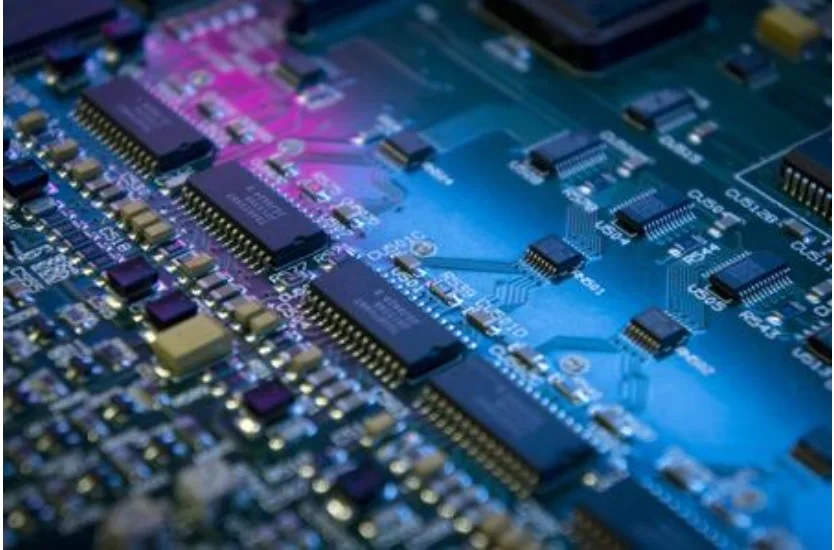Chips, as the core components of modern electronic technology, have an extensive range of applications that cover almost every aspect of contemporary society. From advanced aerospace technology to indispensable everyday electronic products, chips play a crucial role.
Additionally, IC chips are highly sophisticated instruments measured in nanometers. Despite being as small as a fingernail, they integrate billions or even tens of billions of transistors. Simply put, IC chips are the circuits, resistors, and other electronic components we see everywhere, as well as the parts they constitute, all integrated and packaged into a tiny grain. There are many types of chips, categorized in various ways, and a series of interconnected chips can be combined into what is known as a chipset. IC chips have a wide range of applications in our daily lives, with different types of IC chips serving different functions.
I. Communication Field
In the communication field, the application of chips is ubiquitous. The development of technologies such as mobile communication, wireless communication, and satellite communication relies heavily on chips. Mobile phones, an essential communication tool in modern life, contain baseband chips, RF chips, and other crucial components for communication functions. Moreover, with the continuous development of new generations of communication technologies like 5G and 6G, the performance requirements for chips are becoming increasingly stringent, further driving the application and innovation of chips in the communication field.
II. Computer Field
In the computer field, chips also hold a pivotal position. Whether in desktop computers, laptops, or tablets, the internal central processing units (CPUs), graphics processing units (GPUs), and other components are all composed of chips. The performance of these chips directly determines the operating speed and processing capabilities of the computer. With the rise of technologies such as cloud computing and big data, the performance requirements for computer chips are continually increasing, prompting chip manufacturers to continuously higher-performance and lower-power chips.
III. Automotive Electronics Field
Electrification of automobiles is one of the development trends in the automotive industry today, and chips are the key to achieving automotive electronics. Chips are widely used in engine control, body control, safety systems, and in-car entertainment systems. As technologies like autonomous driving and intelligent networking continue to develop, the demand for chips in the automotive sector will continue to grow. It is expected that in the coming years, the automotive electronics field will become a major growth point for chip applications.
IV. Consumer Electronics Field
In the consumer electronics field, chips are also widely used. Whether in household appliances such as refrigerators, washing machines, and air conditioners, or personal electronic products like smartwatches and smart glasses, chips are needed to realize various functions. With the rise of concepts such as the Internet of Things and smart homes, along with the improvement in living standards, the demand for consumer electronic products will continue to grow, driving the application and development of chips in the consumer electronics field.
V. Industrial Control Field
In the industrial control field, chips are widely used in various automated devices. For example, robots, CNC machines, and automated production lines in factories all require chips for precise control and operation. With the introduction of concepts like Industry 4.0 and the continuous improvement in industrial automation levels, the demand for industrial control chips will continue to increase. This will drive chip manufacturers to continuously develop higher-performance, more stable, and reliable industrial control chip products.
VI. Medical Electronics Field
In the medical electronics field, the application of chips is also becoming increasingly widespread. For instance, in medical diagnostic equipment, chips are used to perform various complex algorithms and data processing tasks; in wearable medical devices, chips are responsible for monitoring users’ physiological indicators and transmitting data to the cloud for analysis and processing. With growing emphasis on health management and continuous advancements in medical technology, the demand for chips in the medical electronics field will continue to grow.
VII. Aerospace Field
In the aerospace field, due to the extremely high performance and safety requirements of products, the performance and quality requirements for chips used in aerospace products are also exceptionally stringent. Whether in airplanes or satellites and other aerospace devices, a large number of high-performance chips are needed to support their normal operation and mission completion. With the continuous development of aerospace technology and deeper exploration of space, the demand for aerospace-grade chips will continue to increase.
In conclusion, as one of the core components of modern electronic technology, chips play a crucial role in various fields, including communication, computers, automotive electronics, consumer electronics, industrial control, medical electronics, and aerospace. With continuous technological advancements, improving living standards, and the emergence of new markets, the application fields of chips are expected to further expand and deepen in the coming years.
For more information click here.









